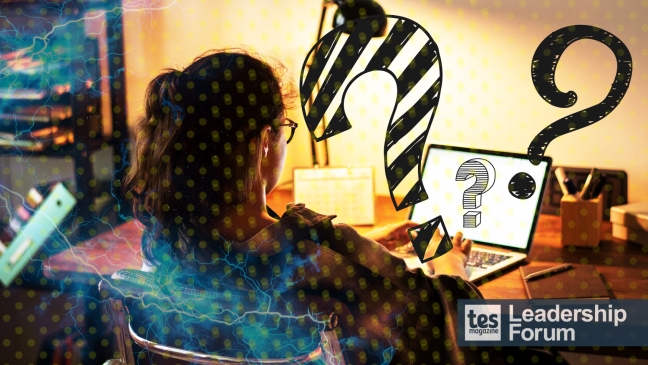Here’s a question for you: should a student logging into a lesson via a remote learning platform be classed as attending or absent? What about if a pupil is recovering from an illness and the school has provided a home tutor until they’re ready to return to school in person - are they “off school”?
In the past, such students were logged under the B code that stated a student was engaged in an “off-site educational activity” and classed as attending.
Now, though, the Department for Education has changed the descriptions for attendance codes. A child engaging in remote education must be classed under the new rules as an “authorised absence”, chiefly under the C code for “leave of absence for exceptional circumstance”.
“As set out in the DfE’s guidance on providing remote education, pupils who are absent from school and receiving remote education still need to be recorded as absent using the most appropriate absence code,” the latest attendance guide states.
The inclusion question
The trouble is, the C code suggests no learning is happening, when the pupil is learning - just not physically in the same room as their peers.
The impact of this change is already being felt, with FFT Datalab reporting that use of the B code has fallen by about half in secondary schools and a lesser amount in primary.
While this may appear to be a niche data collection tweak, it is creating new headaches for school leaders: should they feel it most appropriate to support a child with remote learning, they face being penalised for that decision as their attendance data will suffer.
It would be churlish to suggest that a school leader would provide support only if it reflected well in the data, but if we “treasure what we measure”, the new system hardly makes it appealing to put time, effort and cost into remote provision. It’s a point ASCL made earlier this year, saying the new codes “could disincentivise schools from continuing effective remote learning practices for students who are unable to attend school in person”.
Meanwhile, a special-school leader told me how frustrated they are by the change because of how it ignores any understanding of inclusion or the needs of the pupils they support.
Indeed, the change seems at odds with the shift within the DfE under Labour to demonstrate a willingness to recognise and reward inclusive schools, such as the plans to incorporate inclusive approaches into new report card inspections.
Ignoring the reality of remote learning
And any parent or carer tracking a child on a management information system may wonder about a new letter appearing against their child - and feel demoralised when they learn that efforts to support with remote learning are now considered “non-attendance” by the powers that be, despite the fact the child may well be sat there all day “attending”, albeit virtually.
What is particularly frustrating to many in the sector is that the pandemic showed millions of parents, young people and teachers that learning can work this way - so why are we now equating it to the equivalent of no learning taking place at all?
Of course, it’s fine to argue that in-person learning is the gold standard and push for this, which is what one MAT leader told me they saw this change as representing. But to do so in a way that sweeps all efforts around remote learning into a box marked “absent” feels unnecessarily reductive.
The irony in all this is that leaders have told me the other new codes the DfE introduced (such as C1 and C2, or the new Y codes) are welcome because they provide more context around reasons for absence.
Tweak the codes
What the DfE now needs to do is admit the error and make a simple tweak: perhaps we need new B codes (B1 and B2?) that would allow the system to acknowledge the contextual circumstances that pupils and schools face when it comes to remote learning needs and log it accurately.
That would make more sense for the data, but most importantly, it would recognise the fantastic work that many schools are doing in providing remote provision to some of their most vulnerable learners.
Dan Worth is senior editor at Tes
For key school and trust leadership insights delivered every month, sign up for the Tes Leaders’ Briefing newsletter






